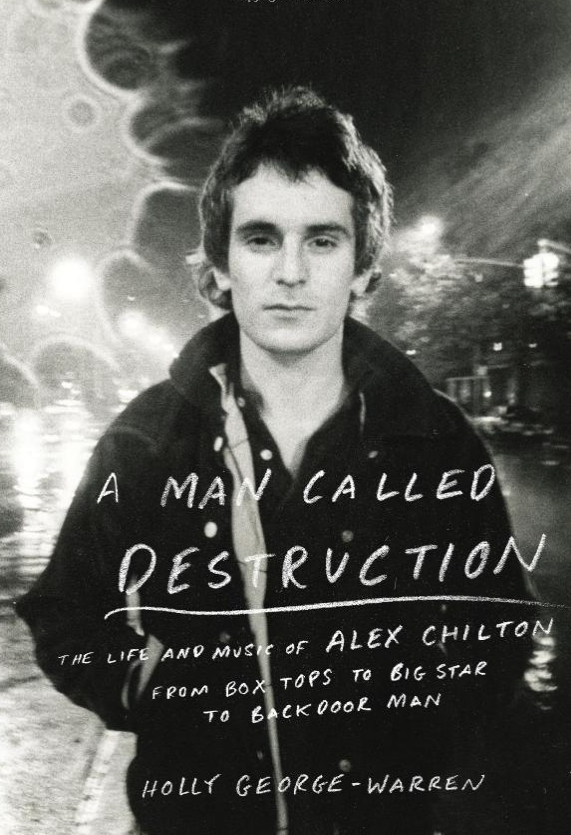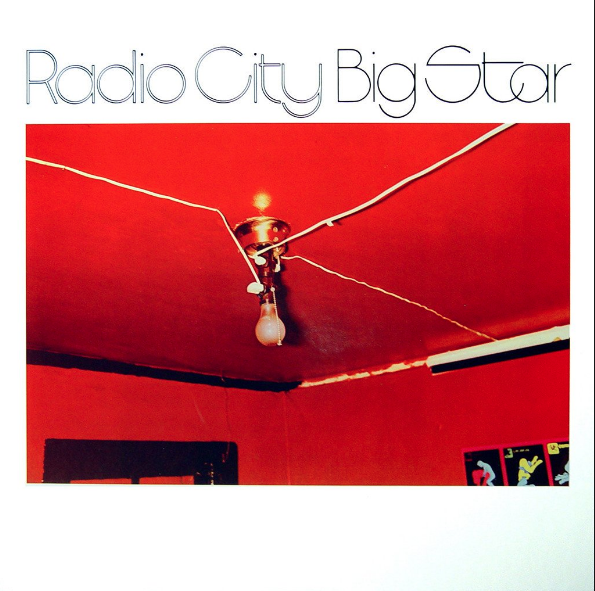While most of the world celebrates March 17th as the anniversary of the death of St. Patrick, it also marks another year without Alex Chilton. We could go into his history (teenaged singer on the Box Tops hit, “The Letter,” frontman of Big Star, whose three albums are among the best pop music recorded in the ’70s, and an erratic solo career, cut short just as he seemed on the verge of yet another come back), but for that, we recommend you pick our friend Holly George-Warren’s wonderful biography of Chilton, “A Man Called Destruction.” Rather, we hope you enjoy this short playlist of some of our favorite music by (and, in one case, about) him.
 “The Letter” and “Cry Like A Baby,” started Chilton’s career off with two big hits, catchy pieces of Memphis pop produced by the great Dan Penn. Frustrated at not being able to record his own songs, Chilton left the band, forming the ironically named Big Star with Chris Bell. Their debut, with the equally ironic title, “#1 Record” was both delicate and rocking. “Thirteen” is one of most tender ballads about frustrated love and the solace of music. “When My Baby’s Beside” is a more carnal, harder rocking tune. Big Star’s second album, 1974’s “Radio City,” (featuring a cover shot by acclaimed photographer William Eggleston should have been a hit, but Stax, the parent of their label Ardent, lost their distribution deal, and the record barely made it into stores. Even though the songs were both musically and emotionally messier, an album of adolescent love songs was out of step with the times. As with the Velvet Underground’s debut, “Radio City” didn’t sell many copies, but almost everyone who bought one formed a band, and a decade later, the Bangles had a hit with “September Gurls.”
“The Letter” and “Cry Like A Baby,” started Chilton’s career off with two big hits, catchy pieces of Memphis pop produced by the great Dan Penn. Frustrated at not being able to record his own songs, Chilton left the band, forming the ironically named Big Star with Chris Bell. Their debut, with the equally ironic title, “#1 Record” was both delicate and rocking. “Thirteen” is one of most tender ballads about frustrated love and the solace of music. “When My Baby’s Beside” is a more carnal, harder rocking tune. Big Star’s second album, 1974’s “Radio City,” (featuring a cover shot by acclaimed photographer William Eggleston should have been a hit, but Stax, the parent of their label Ardent, lost their distribution deal, and the record barely made it into stores. Even though the songs were both musically and emotionally messier, an album of adolescent love songs was out of step with the times. As with the Velvet Underground’s debut, “Radio City” didn’t sell many copies, but almost everyone who bought one formed a band, and a decade later, the Bangles had a hit with “September Gurls.”
Chilton started to lose control during the recording of their third album, a process so chaotic that no one can even agree on its name;at various times it’s been released as “Third” or “Sister Lovers”. It’s sound was equally chaotic; vulnerable and unhinged, it’s an unvarnished look at a man falling apart.
Now a solo act, he headed north and became a favorite at downtown New York haunts such as CBGB and the Ocean Club. Playing with a trio that included Chris Stamey (who would later go on to form the dB’s), he released “Bangkok” on the Ork label (which released the first Television and Richard Hell and the Void Oids singles), produced album by the Cramps and Tav Falco and Panther Burns, and released the shambolic “Like Flies on Sherbert” in 1980.
By the middle of the decade, he disappeared, moving to New Orleans, where he worked as a dishwasher. With a new manager, and the support of fans and fellow musicians, he started recording new music that ended up being released on Feudilist Tarts” and “High Priest” He added the sounds of New Orleans and his roots in Memphis back into his tunes, as heard in the cheerfully raunchy “Take It Off” and “Make A Little Love.”
Finally, we have the Replacements, Chilton acolytes both in sound and in self-destruction, pay tribute to Chilton, imagining a more perfect world where “children by the million sing for Alex Chilton when he comes ’round.”


Leave a Reply